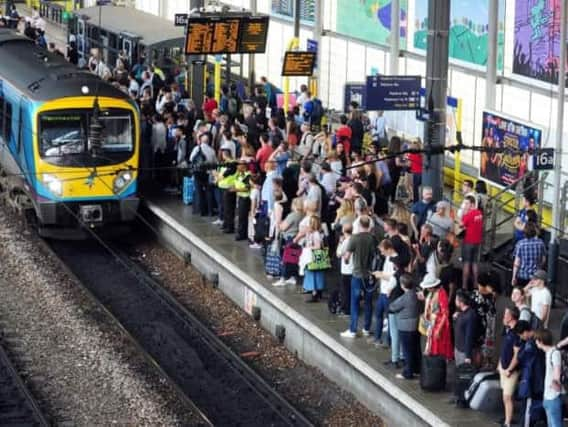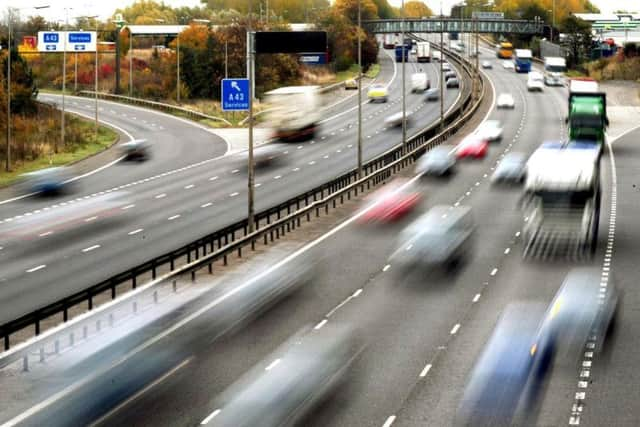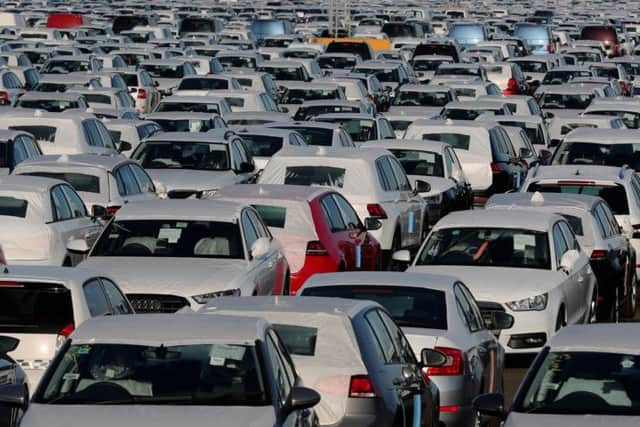Transport: The dead battery in the Northern Powerhouse – David Behrens


But there has been an unsubtle shift in the commuting continuum. Yorkshire’s trains are famously appalling and its road arteries are choked, yet we are paying above London prices for the privilege of having to use them.
Here’s what I mean: a hop across town from Arsenal’s stadium, north of the Thames, to Millwall’s in the south – a journey of 70 minutes by bus and tube – would set me back exactly £2.90, even in the morning rush hour. A single ticket would cover my entire journey.
Advertisement
Hide AdAdvertisement
Hide AdA 28-minute train ride from Ilkley to Leeds, on the other hand, now costs £5.40, one way. If I wanted to take a bus out of the city centre I would have to pay again.


It ought not to be beyond the wit of those who manage our transport infrastructure to spot the anomaly and do something about it. But, as a series of closeted meetings demonstrated this week, it conclusively is.
The North is the only region outside London to have a governmental body to oversee its roads and railways. Transport for the North, or TfN, is supposed to bring public and private interests together, advise on strategy, and then implement it.
Advertisement
Hide AdAdvertisement
Hide AdInstead, it stands as a symbol of the inertia that has come to define our transport network. In the mighty Northern Powerhouse, TfN is the dead battery.


Its failure this week to deliver the type of fare-capped, bus-and-rail ticket system that Londoners take for granted is an embarrassment and an indictment. If it can’t get the basics right, what chance does it have of delivering the holy grail of an express line across the Pennines? Its current proposals for that, as this newspaper reveals today, appear to have been dismissed out of hand.
TfN would like us to believe that it is hamstrung by not having the statutory powers of Transport for London. But while that is true, it’s also a smokescreen. The reality is that TfN simply lacks the basic negotiating skills to get people around a table and knock heads together. The main bus companies, First and Arriva, refused to have anything to do with its “smart” tickets; they had better systems of their own, they said.
Advertisement
Hide AdAdvertisement
Hide AdBeing pushed around by Arriva is especially humiliating. The company also owns Northern Rail, whose performance is so dire that two mayors have demanded it lose its franchise on the spot. The fact that it still has it is a further pointer to TfN’s impotence.
Northern’s managing director, David Brown, used to be TfN’s chief executive, incidentally.
There are many questions to be asked over this week’s ticketing fiasco. Politicians have already demanded to know why it didn’t get the agreement of the bus companies at the outset. But TfN is disturbingly coy, going so far as to discuss only in private how it might pick up the pieces.
The main point at issue is whether it still has a role at all. Lord Prescott, to his credit, didn’t think it did in the first place. A year-and-a-half ago, he stormed out of a presentation on its supposed Northern Powerhouse Rail project, dropping a few home truths in his wake. A “bloody fraud” was his parting shot.
Advertisement
Hide AdAdvertisement
Hide AdYet the Department of Transport knew exactly what it was doing when it created its illegitimate child: it was passing the buck. It has been its mantra ever since, whenever things go wrong, to stress that it merely shares responsibility with TfN; it cannot be held entirely responsible.
For its part, TfN has waged no noticeable campaign for extra powers or the responsibility they would bring.
Part of the reason we privatised transport in the 1990s was to do away with enfeebled decision-making such as this. Instead, we have a system in which the tail wags the dog; of under-regulated and badly-performing companies strong-arming hapless administrators into getting their way.
Advertisement
Hide AdAdvertisement
Hide AdIt is often said that what London has today, the North will get tomorrow. In the case of a workable transport system, tomorrow seems further off than ever, and TfN must shoulder a good deal of blame for that.